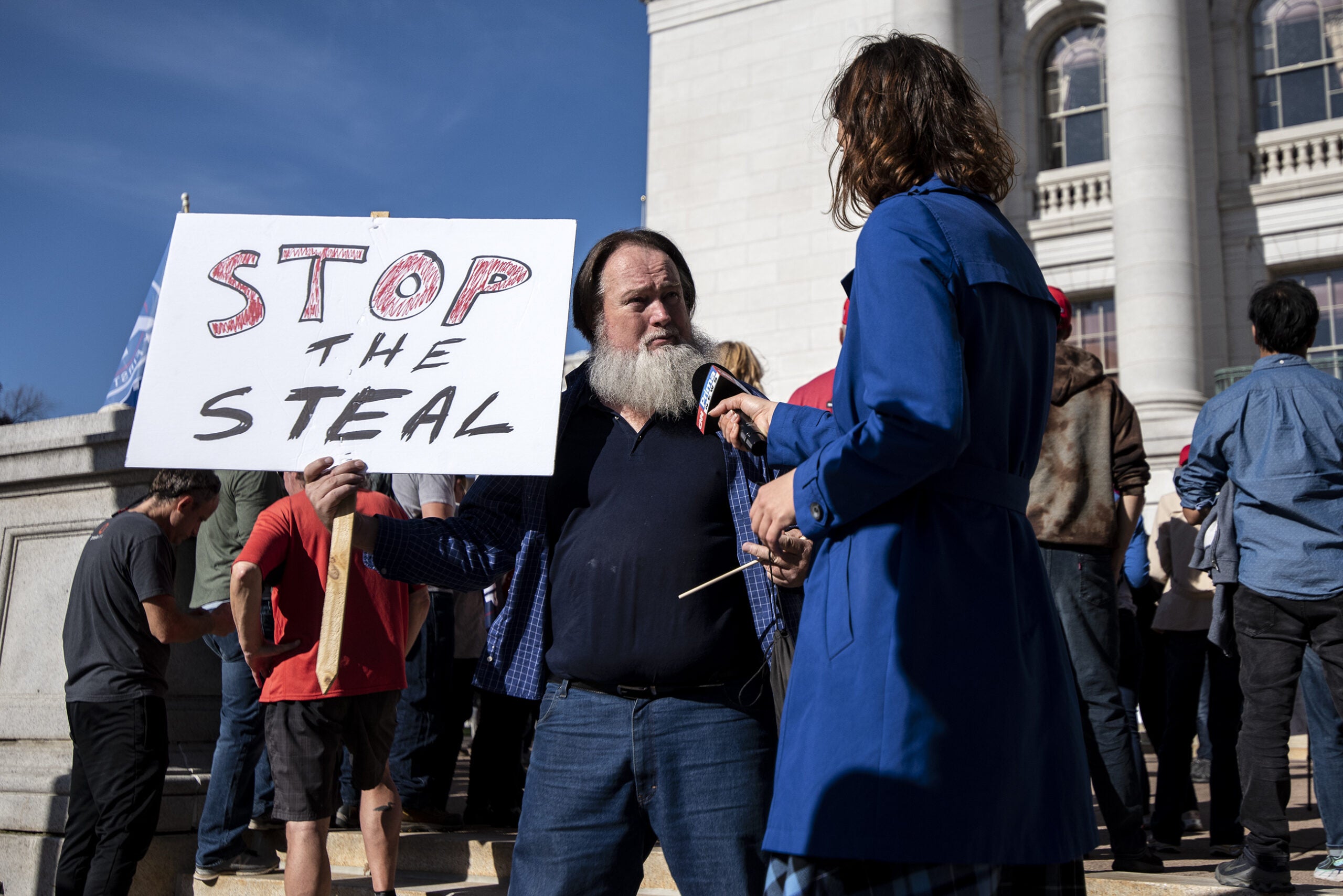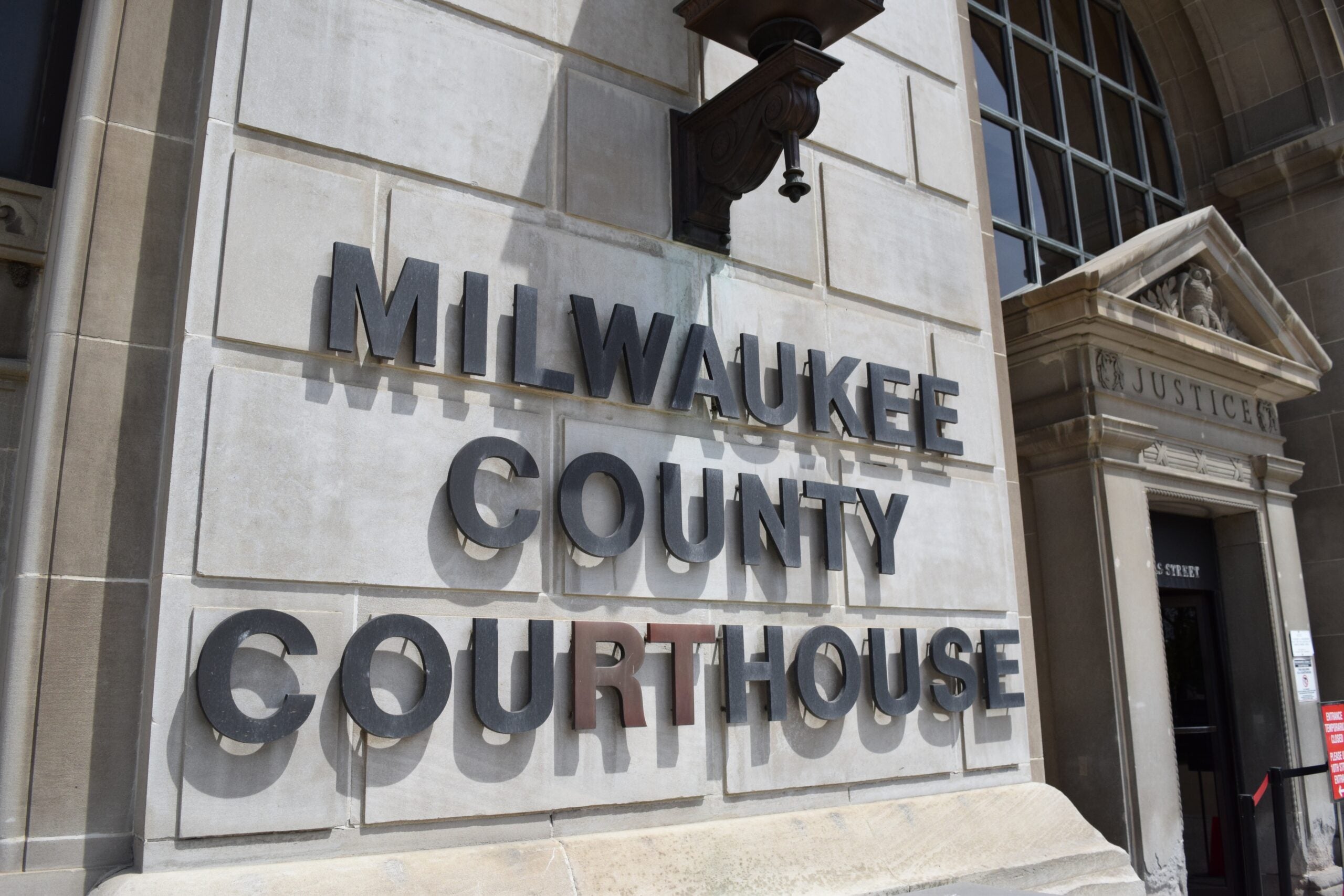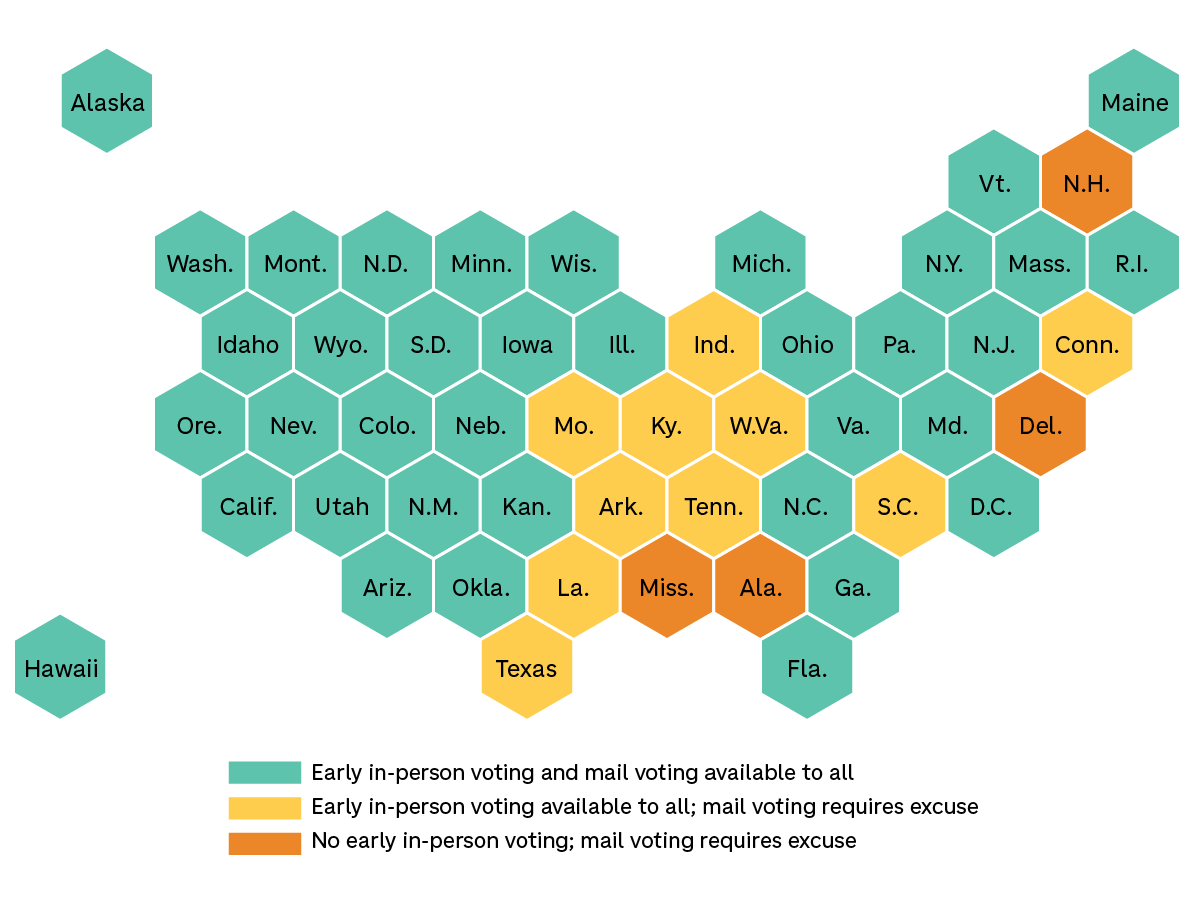As President Donald Trump and some of his allies continue to make unsubstantiated claims of widespread voter fraud across the country following last week’s election, an analysis of reports from state elections officials by WPR shows Wisconsin municipal clerks flagged 238 possible cases of voter fraud in the state over the past four and a half years.
Those possible cases occurred over several major elections in which more than 12 million cumulative ballots were cast, according to annual reports from the Wisconsin Elections Commission to the state Legislature.
John Mark Hansen, a professor of political science at the University of Chicago, told WPR fraudulent votes on that scale are unlikely to sway elections — particularly high turnout presidential contests.
Stay informed on the latest news
Sign up for WPR’s email newsletter.
“In order to influence an election on the scale of a presidential election, you’re not talking about doing that with a few hundred votes or a few thousand votes, you’re talking about at least tens of thousands,” Hansen said.
Hansen also pointed out individuals would need to be part of a “well-organized conspiracy” and be willing to commit a felony to fraudulently influence an election.
“I think we could easily say that it’s pretty much impossible to imagine there would be thousands of people somewhere who would say, ‘You know, I care a lot about this outcome, so I’m going to risk all of that by making sure that Joe Biden has one more vote in Wisconsin or making sure Donald Trump has one more vote in Texas,’” he said.
In Wisconsin, voter fraud comes with a penalty of up to $10,000, imprisonment for up to three and a half years, or both.
Under a state law that look effect Jan. 1, 2016, the Wisconsin Elections Commission must provide an annual report to the state Legislature detailing possible cases of fraud flagged by municipal clerks for local law enforcement.
The Elections Commission reports do not include information about how many of the potential fraud cases resulted in criminal charges or were otherwise confirmed by law enforcement. They also only include reports of fraud identified by municipal clerks. It’s possible other cases of potential fraud were referred to district attorneys by individuals or organizations.
Here’s what the Elections Commission reports showed:
2020 Report: 19 Possible Cases Of Fraud
Elections included in the report: 2018 general election (2,673,308 ballots cast); 2019 spring election (1,224,303 ballots cast); 2020 partisan primary (957,197 ballots cast); 2020 presidential primary (1,605,912 ballots cast)
Possible cases of fraud: 19
The violations were:
- Seven reports of an undeliverable Election Day registration confirmation postcard.
- Four reports of an individual attempting to vote twice in the same election by trying to cast a ballot in two different municipalities.
- Three reports of an individual providing an incorrect address on their voter registration.
- Two reports of an individual attempting to vote twice in the same election, once by in-person early voting or voting by mail and once at the polls on Election Day.
- One report of a felon who attempted to register to vote.
- One report of an individual providing unspecified incorrect information on their voter registration.
- One report of an individual attempting to vote twice in the same election, once by in-person early voting and once by mail.
2019 Report: 23 Possible Cases of Fraud
Elections included in report: 2018 spring election (997,485 ballots cast); 2018 partisan primary (1,041,837 ballots cast); 2018 general election (2,673,308 ballots cast)
Possible cases of fraud: 23
The potential violations were:
- 10 reports of voting twice in the same election, once by absentee and once at the polls.
- Five reports of voting twice in the same election by trying to cast a ballot in two different municipalities.
- Three reports of “voter on ineligible list cast ballot.”
- One report of an absentee ballot being counted after the voter was determined to be deceased.
- One report of someone on probation for a felony sentence attempting to vote.
- Two reports of an undeliverable Election Day registration confirmation postcard.
- One report of someone who isn’t a U.S. citizen attempting to register to vote.
2018 Report: 7 Possible Cases of Fraud
Elections included in report: 2017 spring election (708,711 ballots cast); 2016 general election (3,004,051 ballots cast)
Possible cases of fraud: Seven
The potential violations were:
- One report of a voter intentionally registering and voting in wrong municipality.
- Three reports of a voter registration address verification postcard being returned as undeliverable.
- One report of someone voting twice in the same election, in two different municipalities.
- One report of someone voting twice in the same election, once by absentee and once in person at the polls.
- One report of someone who isn’t a U.S. citizen attempting to register to vote.
2017 Report: 189 Possible Cases of Fraud
Elections included in report: 2016 spring election (645,619 ballots cast); 2016 general election (3,004,051 ballots cast)
Possible cases of fraud: 189
The potential violations were:
- 97 reports of a voter registration address verification postcard being returned as undeliverable.
- 69 reports of a 17-year-old attempting to vote. (The Elections Commission reported this was likely caused by misinformation on social media that led 17-year-olds to believe they were eligible to vote in the presidential primary if they would be 18 years old by the fall election. Some states allow that. Wisconsin does not.)
- Seven reports of someone voting twice in the same election, in two different municipalities.
- Eight reports of someone voting twice in the same election, once by absentee and once in person at the polls.
- Five reports of a felon attempting to vote.
- One report of a “voter deemed incompetent for purposes of voting.”
- One report of a “potential stolen vote situation — common name issue.”
- One report of someone voting twice in the same election, once by mail and once through a special voting deputy.
Wisconsin Public Radio, © Copyright 2024, Board of Regents of the University of Wisconsin System and Wisconsin Educational Communications Board.





